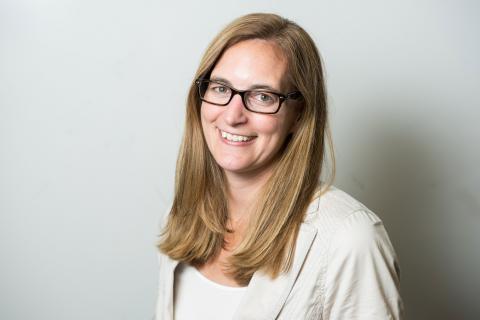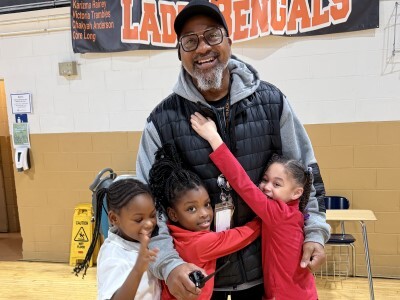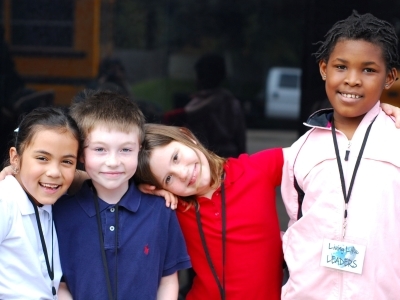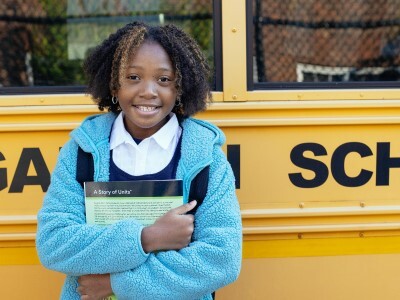Making the Hard Work of Transforming Learning a Little Easier and Way More Joyful
Topics
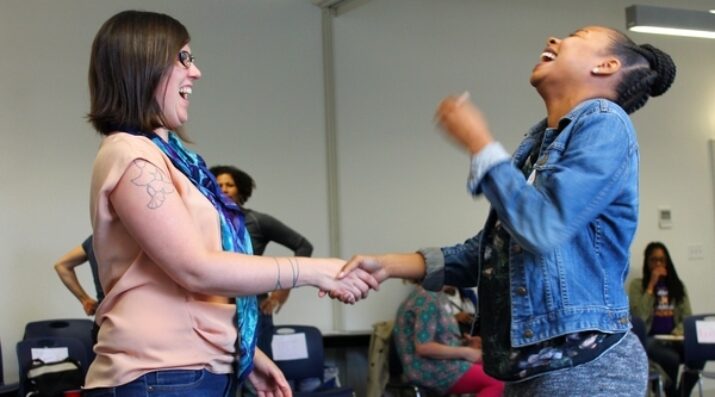
When educators design and create new schools, and live next gen learning themselves, they take the lead in growing next gen learning across the nation. Other educators don’t simply follow and adopt; next gen learning depends on personal and community agency—the will to own the change, fueled by the desire to learn from and with others. Networks and policy play important roles in enabling grassroots approaches to change.
Transforming learning and changing the culture and systems in education is hard work. Because of our network’s contributions, educators are finding that NGLC’s resources and stories can help.
Creating transformative change in our classrooms, schools, and districts is really, really hard to do. But as Northern Cass School District’s superintendent Cory Steiner has been heard to say, just because it’s hard doesn’t mean we shouldn’t do it. But we don’t have to do it alone.
Educators are coming to NGLC’s resources—created in partnership with our network—for help doing the hard things that need to be done for our students’ sake. Hard things like applying schoolwide restorative practices, implementing learner profiles and school profiles that reflect deeper learning goals, changing instruction to bring their school’s graduate portrait to life, addressing racial bias in testing, and developing culturally relevant performance assessments. Hard things like keeping equity front-and-center by shifting the culture of classroom observations, using discussion protocols to facilitate professional learning conversations, and examining the system of education and the bureaucracy of education itself to find out how to create a new system that prioritizes equity and justice.
Take a look at these “reader’s choice” resources (that is, the top 10 resources accessed in 2023) that might help you with the hard work of transforming learning. And after you check out these resources, why not tell your story in 2024? Your story just might be the one that will make the hard work of transforming learning easier for someone else!

Credit: CityBridge Education
Restorative Practices in Schools
Designing for Equity in Next Gen Learning Toolkit
Restorative practices can foster an equitable and positive school culture by strengthening relationships between individuals, both youth and adults, in a school community. The toolkit describes what restorative practices are, offers resources and examples, and recommends strategies to implement restorative practices to build equitable and healthy schools. VIEW THE TOOLKIT
An Educator’s Guide to Learner Profiles for Students
Amanda Avallone for NGLC
As more and more educators work to replace factory-model schools with personalized, student-centered learning experiences, knowing our students has taken on new meaning. This guide describes what learner profiles are, what information they usually contain, how to create them, and how to use them to personalize learning and change instructional practices. VIEW THE GUIDE
How Students Develop the Skills & Competencies in a Portrait of a Graduate
NGLC, with 5 School Communities
More and more schools and districts are adopting graduate or learner portraits to articulate their vision of student success. Five case studies, filled with colorful imagery, real student work, teacher tools, and a multitude of voices, offers rich examples of how to redesign teaching and learning and create the systems and the culture that bring their vision to life. VIEW THE CASE STUDIES
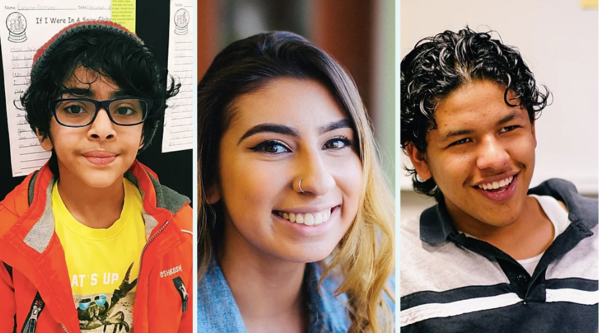
Credit: Assessment for Learning Project
How to Address Racial Bias in Standardized Testing
Young Whan Choi, Educator and Author
Racial bias shows up in standardized testing in the making of the tests, the delivery of the tests, and in the taking of the tests. Equitable assessment tools can foster a positive exploration of identity, a growth mindset, and measure what a student knows and can do. READ THE ARTICLE
Keeping Students at the Center with Culturally Relevant Performance Assessments
Maya Kaul for the Learning Policy Institute
As schools make the shift toward student-centered learning, performance assessments provide a critical space for students to reflect on and share their personal stories and their identities as learners, which brain science has found to be fundamental to learning. Two key lessons drawn from the Hawai’i education department, the Hawaiian-focused Charter School network, and the California Performance Assessments Collaborative can help educators make performance assessments culturally responsive in a variety of settings. READ THE ARTICLE
School Profiles: Helping College Admissions Teams Understand Deeper Learning
Julie Adams for the Learning Policy Institute
Next gen learning schools can use their school profile to help admissions teams understand their students’ experiences with performance-based assessment like capstones or portfolio defenses, project-based learning, internships, and other aspects of deeper learning. This article offers advice and examples from deeper learning schools to help students stand out from other applicants. READ THE ARTICLE

Credit: NGLC
In a Tough School Year, Keeping Eyes on the Classroom Will Be Key to Improving Equitable Outcomes for All
Matthew Duffy, Superintendent and Consultant
“As a former principal and superintendent and someone who just enjoys kids digging into student learning, there is nothing more refreshing than walking through a school with open doors where classroom visits are a welcome part of a continued effort to grow and learn.” Shifting from a culture of classroom isolation to a culture of open doors is not easy, but watching the interaction between teachers, students, and the subject matter is the ultimate lever in attaining stronger, more equitable educational outcomes for all students. READ THE ARTICLE
Discussion Protocols
Designing for Equity in Next Gen Learning Toolkit
Creating time for dialogue and reflection about issues of equity directly challenges the inequities in our education system. Both seasoned and novice facilitators can use discussion protocols like those provided in NGLC’s Designing for Equity toolkit to support educators in professional learning settings. The periodic use of discussion protocols in a group committed to working and learning together increases awareness and appreciation for differences in individual privilege, builds communication and listening skills, supports the group to develop a shared identity around equity, and deepens a sense of community. VIEW THE TOOLKIT
Why Transforming Public Education Is So Damn Hard
Andy Calkins for NGLC
A spirit of continuous inquiry and innovation combined with a ferocious practicality will take public education into the future to best serve our younger generations. To do that, we first need to recognize the water we’re swimming in—the systems, mindsets, structures, and processes that teachers, administrators, and students experience in schools every day. READ THE ARTICLE
School and District Bureaucracy Has Failed Us All. What Are Some Alternatives?
John Watkins, Education Coach and Consultant
Creating coherence, equity, and powerful learning in our existing school district bureaucracies and hierarchies is a challenge. But there is a way forward. Eight characteristics for an alternative kind of organization define emancipatory organizational design for school districts. READ THE ARTICLE
Photo at top courtesy of Young Audiences/Arts for Learning Maryland

